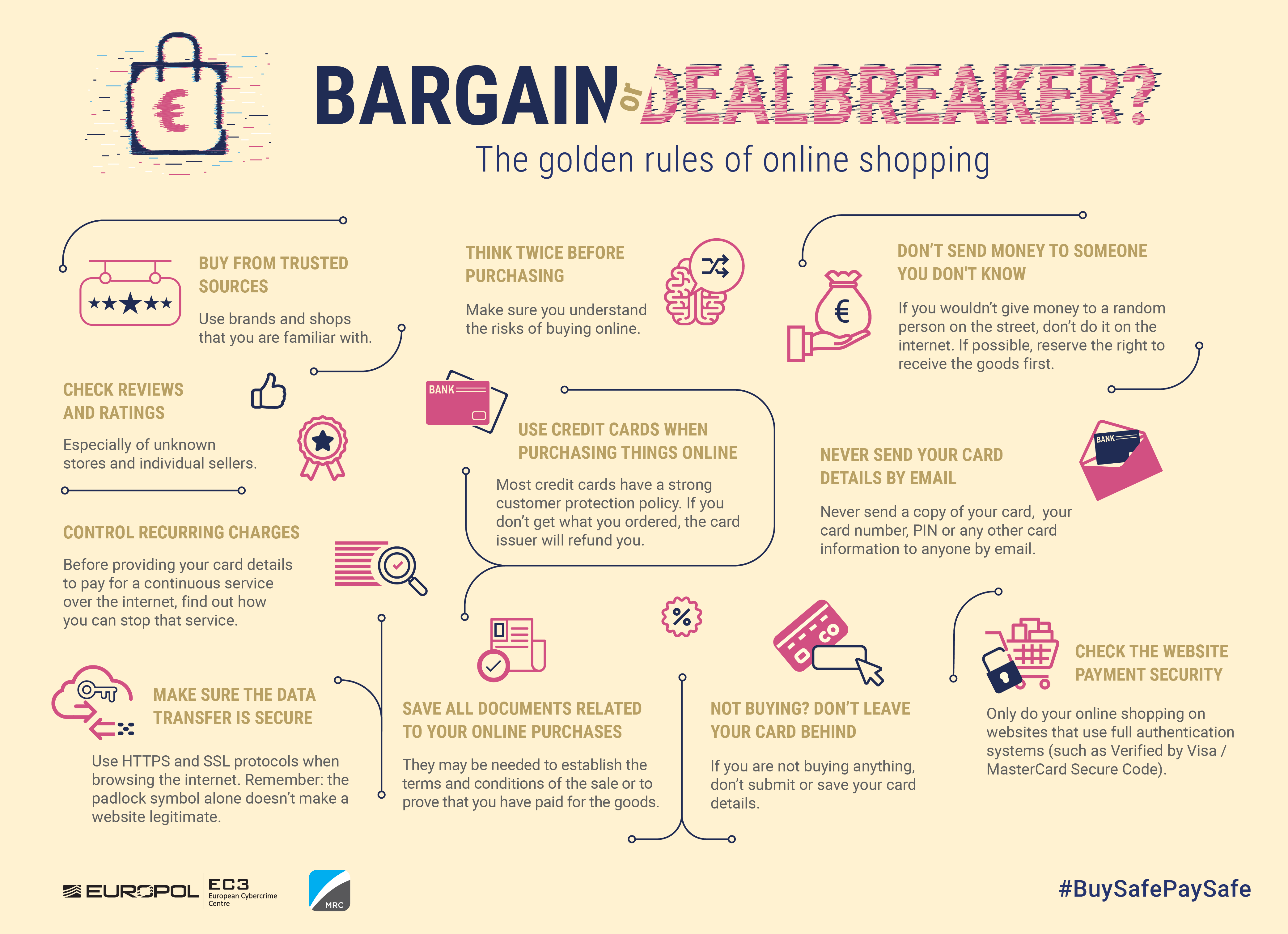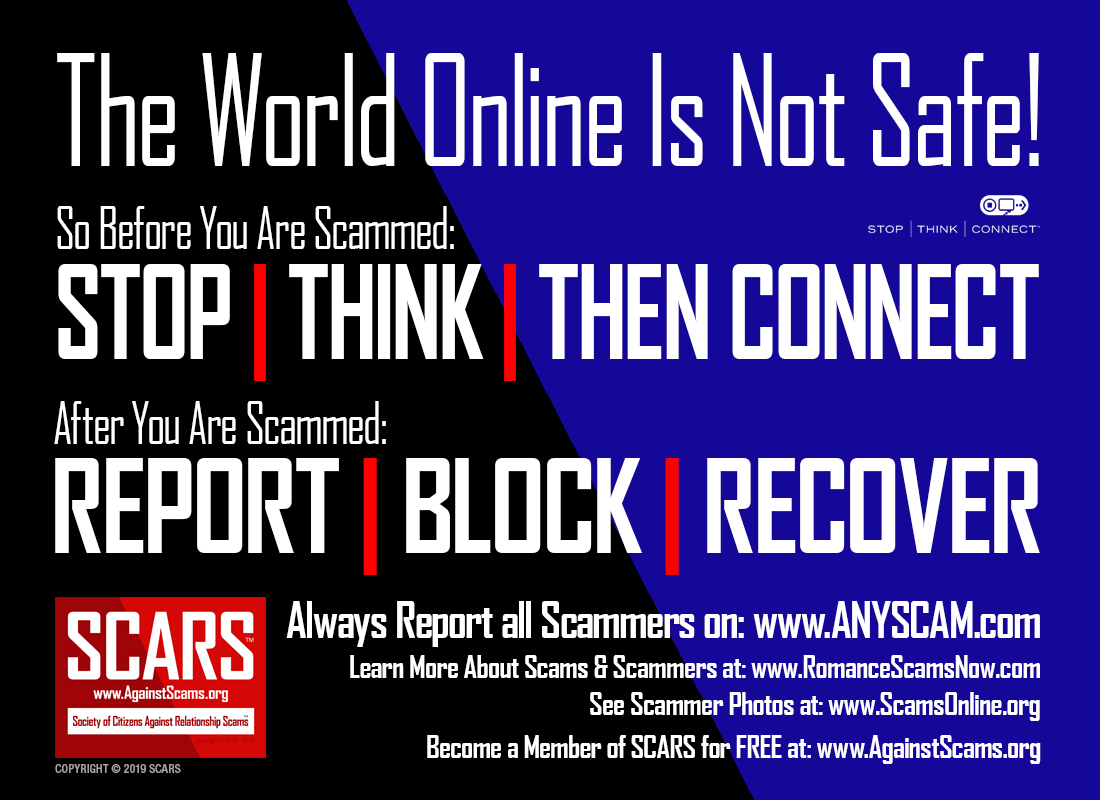Here’s How To Outsmart Criminals Abusing The Online Shopping Experience This Holiday Season
The biggest retail season of the year is around the corner, and you do not even need to leave the comfort of your home to participate.
But Neither Do The Criminals
Easy website design, increased social media traffic, and convenience has made buying and selling online products a pillar of the modern shopping experience. The COVID-19 pandemic has driven even more consumers to turn online to make purchases. For businesses, this trend poses both challenges and significant opportunities. More sales and more traffic all mean more revenue. But it also means more fraud as criminals have even more opportunities to steal from both consumers and merchants. So how should retailers be prepared?
Europol Launches #SellSafe Awareness Campaign
Through an awareness campaign launching today, law enforcement across 16 countries have teamed up with Europol’s European Cybercrime Centre (EC3) and the Merchant Risk Council to share practical advice on how to outwit criminals trying to abuse the online shopping experience.
This new awareness campaign is being conducted under the umbrella of the 2020 e-Commerce Action (eComm 2020) led by Europol and the Austrian Criminal Intelligence Service (Bundeskriminalamt). This year’s campaign has a special focus on e-merchants, helping them better identify fraud on their platforms and empowering them to take steps to protect their business and customers against such attacks.
Law enforcement as well as key retail partners (such as SCARS) will share the messages of the campaign using the #SellSafe hashtag to reach the widest possible audience.
The threat posed by these criminals is very real: in the lead up to this campaign, a number of countries carried out operational actions which resulted in the arrest of 22 such e-fraudsters in the month of October alone.
Edvardas Šileris, Head of Europol’s European Cybercrime Centre (EC3) said: “Peak season for cybercriminals and fraudsters is just around the corner. Often, businesses will not realise they have processed a fraudulent transaction until weeks or even months later. This is why e-commerce fraud is so dangerous – by the time all parties involve realise, it can be too late to find the criminal. That is why prevention is the best solution. Europol is working with its partners from policing and the private sector in this eComm2020 action to protect businesses and customers from such attacks.”
Bernhard Schafrath, Detective at the Austrian Criminal Intelligence Service, said: “Over the years, high street retailers have taken comprehensive measures to protect their businesses against theft, burglaries and the like. In the 21st century, online businesses need to take similar measures to protect themselves against threats such as fraud, phishing and parcel mules. The awareness campaign launched today draws on the experience of law enforcement investigations against fraudulent orders of various kinds, and aims to help merchants better recognise and address the security gaps on their platforms”.

How to protect your e-business
Taking your business online to the e-commerce world is a big step. There are a number of simple measures you can take to #SellSafe. Europol’s European Cybercrime Centre has put together some pointers to get you started:
- Know your product: some products are riskier to sell than others. For example, selling easily resalable small items that are already in demand is riskier than personally designed items.
- Know your customer: If you accept card payments and ship valuable goods to your customers, you would want to know who you are sending the items to, wouldn’t you?
- Establish a safe means of payment: Your card processor can advise you. Choosing a safe means of payment will limit the risk of fraud.
- Use a reliable delivery service: choose a delivery method where you can be sure of the professional handling of your merchandise and possible non-delivery dispute claims.
Stay Safe This Holiday Season
Scams and scammers are going to be everywhere!
Don’t Trust Anyone And Verify Everything!

TAGS: SCARS, Holiday Scams, Information About Scams, Anti-Scam, Scams, Scammers, Fraudsters, Cybercrime, Crybercriminals, Scam Victims,
SCARS™ Team
Society of Citizens Against Relationship Scams Inc.
A Worldwide Crime Victims Assistance Nonprofit Organization
Visit: www.AgainstScams.org
Contact Us: Contact@AgainstScams.org
PLEASE SHARE OUR ARTICLES WITH YOUR FRIENDS & FAMILY
HELP OTHERS STAY SAFE ONLINE – YOUR KNOWLEDGE CAN MAKE THE DIFFERENCE!
The Latest SCARS Posts:
FIND MORE SCAM NEWS
«SCAMCRIME.COM»
JOIN US ON FACEBOOK
«CLICK HERE»
END
MORE INFORMATION
– – –
Tell us about your experiences with Romance Scammers in our
« Scams Discussion Forum on Facebook »
– – –
FAQ: How Do You Properly Report Scammers?
It is essential that law enforcement knows about scams & scammers, even though there is nothing (in most cases) that they can do.
Always report scams involving money lost or where you received money to:
- Local Police – ask them to take an “informational” police report – say you need it for your insurance
- U.S. State Police (if you live in the U.S.) – they will take the matter more seriously and provide you with more help than local police
- Your National Police or FBI « www.IC3.gov »
- The SCARS|CDN™ Cybercriminal Data Network – Worldwide Reporting Network on « www.Anyscam.com »
This helps your government understand the problem, and allows law enforcement to add scammers on watch lists worldwide.
– – –
To learn more about SCARS visit « www.AgainstScams.org »
Please be sure to report all scammers
on « www.Anyscam.com »
Disclaimer:
SCARS IS A DIGITAL PUBLISHER AND DOES NOT OFFER HEALTH OR MEDICAL ADVICE, LEGAL ADVICE, FINANCIAL ADVICE, OR SERVICES THAT SCARS IS NOT LICENSED OR REGISTERED TO PERFORM.
IF YOU’RE FACING A MEDICAL EMERGENCY, CALL YOUR LOCAL EMERGENCY SERVICES IMMEDIATELY, OR VISIT THE NEAREST EMERGENCY ROOM OR URGENT CARE CENTER. YOU SHOULD CONSULT YOUR HEALTHCARE PROVIDER BEFORE FOLLOWING ANY MEDICALLY RELATED INFORMATION PRESENTED ON OUR PAGES.
ALWAYS CONSULT A LICENSED ATTORNEY FOR ANY ADVICE REGARDING LEGAL MATTERS.
A LICENSED FINANCIAL OR TAX PROFESSIONAL SHOULD BE CONSULTED BEFORE ACTING ON ANY INFORMATION RELATING TO YOUR PERSONAL FINANCES OR TAX RELATED ISSUES AND INFORMATION.
This content and other material contained on the website, apps, newsletter, and products (“Content”), is general in nature and for informational purposes only and does not constitute medical, legal, or financial advice; the Content is not intended to be a substitute for licensed or regulated professional advice. Always consult your doctor or other qualified healthcare provider, lawyer, financial, or tax professional with any questions you may have regarding the educational information contained herein. SCARS makes no guarantees about the efficacy of information described on or in SCARS’ Content. The information contained is subject to change and is not intended to cover all possible situations or effects. SCARS does not recommend or endorse any specific professional or care provider, product, service, or other information that may be mentioned in SCARS’ websites, apps, and Content unless explicitly identified as such.
The disclaimers herein are provided on this page for ease of reference. These disclaimers supplement and are a part of SCARS’ website’s Terms of Use.
Legal Notices:
All original content is Copyright © 1991 – 2020 Society of Citizens Against Relationship Scams Inc. (D.B.A SCARS) All Rights Reserved Worldwide & Webwide. Third-party copyrights acknowledge.
SCARS, SCARS|INTERNATIONAL, SCARS, SCARS|SUPPORT, SCARS, RSN, Romance Scams Now, SCARS|INTERNATION, SCARS|WORLDWIDE, SCARS|GLOBAL, SCARS, Society of Citizens Against Relationship Scams, Society of Citizens Against Romance Scams, SCARS|ANYSCAM, Project Anyscam, Anyscam, SCARS|GOFCH, GOFCH, SCARS|CHINA, SCARS|CDN, SCARS|UK, SCARS|LATINOAMERICA, SCARS|MEMBER, SCARS|VOLUNTEER, SCARS Cybercriminal Data Network, Cobalt Alert, Scam Victims Support Group, are all trademarks of Society of Citizens Against Relationship Scams Inc., All Rights Reserved Worldwide
Contact the law firm for the Society of Citizens Against Relationship Scams Incorporated by email at legal@AgainstScams.org











Leave A Comment